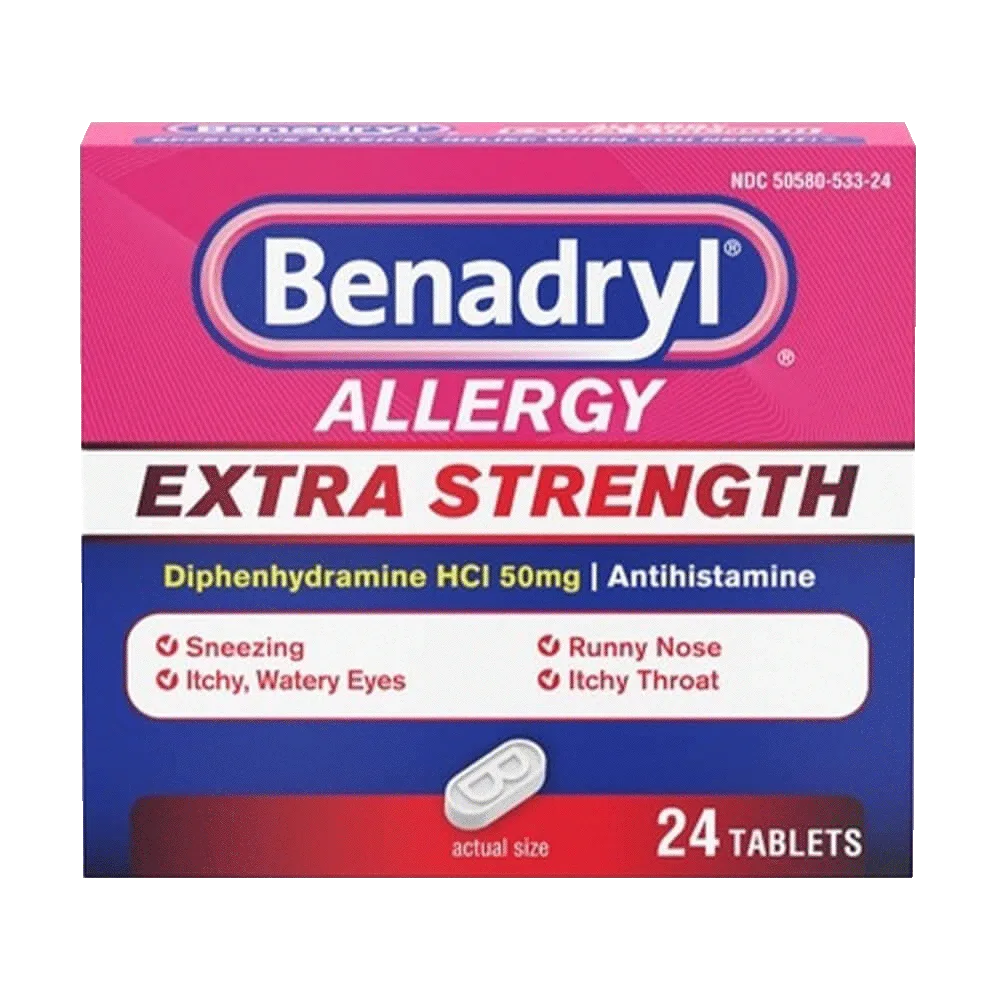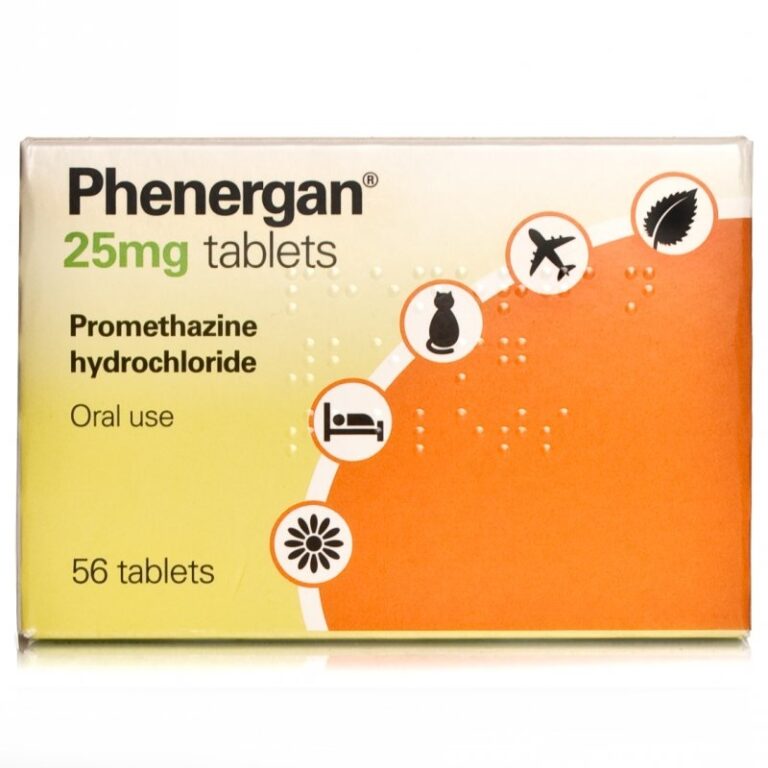
iDiphenhydramine is an antihistamine commonly used to treat various conditions such as allergies, hay fever, and motion sickness. It is also widely used as a short-term sleep aid due to its sedative effects. This drug profile provides a detailed overview of diphenhydramine, including its uses, mechanism of action, side effects, and brand names.
What is Diphenhydramine?
Diphenhydramine is an over-the-counter (OTC) medication that belongs to the class of first-generation antihistamines. It works by blocking histamine receptors in the brain, helping to alleviate symptoms such as itching, swelling, and rashes. It also has a sedative effect, making it useful in treating insomnia.
Chemical Composition and Formulation
It is available in various forms, including oral tablets, capsules, liquid solutions, and topical creams. The active ingredient is diphenhydramine hydrochloride, and it is typically taken in doses ranging from 25 mg to 50 mg.
Uses of Diphenhydramine
- Allergy Relief
Diphenhydramine is commonly used to relieve symptoms of allergic reactions, such as sneezing, runny nose, itching, and watery eyes. It blocks the action of histamine, a chemical responsible for allergy symptoms.
- Motion Sickness
It is effective in both the prevention and treatment of motion sickness symptoms, such as nausea, vomiting, and dizziness. Diphenhydramine works by diminishing the signals transmitted to the brain that trigger these symptoms.
- Insomnia
Due to its sedative properties, it is often used as a short-term treatment for insomnia. Diphenhydramine promotes drowsiness, helping individuals fall asleep faster.
- Cough and Cold
It is sometimes included in combination products for cough and cold treatments. It can help relieve coughing and other symptoms associated with upper respiratory infections.
Mechanism of Action
Diphenhydramine works by antagonizing histamine receptors (H1 receptors) in the body. Histamine is a chemical involved in immune responses, and when it binds to its receptors, it causes inflammation and allergic symptoms. By blocking this action, it helps to reduce the effects of histamine.
Additionally, diphenhydramine crosses the blood-brain barrier and exerts its sedative effects on the central nervous system (CNS). This results in drowsiness, making it effective as a sleep aid.
Dosage and Administration
Recommended Dosage
- Adults and Children over 12 years: 25–50 mg every 4–6 hours, not exceeding 300 mg per day.
- Children (6-12 years): 12.5–25 mg every 4–6 hours, not exceeding 150 mg per day.
- Children under 6 years: It is generally not recommended unless prescribed by a doctor.
Administration Guidelines
Diphenhydramine may be administered orally, regardless of food intake. Liquid forms should be measured accurately using the provided measuring device. For sleep-related purposes, it is advised to take diphenhydramine 30 minutes before bedtime.
Side Effects of Diphenhydramine
While it is generally safe when taken as directed, it can cause several side effects:
Common Side Effects
- Drowsiness or sedation
- Dry mouth, throat, or nose
- Dizziness
- Constipation
Serious Side Effects
- Blurred vision
- Difficulty urinating
- Rapid heart rate
- Allergic reactions (rash, swelling, difficulty breathing)
Warnings and Precautions
Diphenhydramine should be used cautiously in individuals with certain conditions such as:
- Glaucoma
- Asthma
- Heart disease
- Hyperthyroidism
It is also important not to mix diphenhydramine with alcohol or other CNS depressants as this can increase the sedative effect.
Drug Interactions of Diphenhydramine
It can interact with various medications, including:
- Sedatives and tranquilizers: Increased sedation.
- Antidepressants: Risk of serotonin syndrome.
- Alcohol: Enhanced sedative effects.
Always consult a healthcare provider before combining medications.
Brand Names of Diphenhydramine
Diphenhydramine has various brand names worldwide. Below is a table of common brands and their specifications:
| Brand Name | Formulation | Strength | Indication |
| Benadryl | Oral Tablet, Oral Liquid | 25 mg, 50 mg | Allergy, Cough & Cold, Insomnia |
| Sominex | Oral Tablet | 25 mg | Insomnia, Sleep Aid |
| Nytol | Oral Tablet | 50 mg | Insomnia, Sleep Aid |
| ZzzQuil | Oral Liquid, Oral Tablet | 25 mg | Insomnia, Sleep Aid |
| Diphenhist | Oral Tablet | 25 mg | Allergies, Motion Sickness |
| Dimetapp | Oral Tablet, Syrup | 25 mg | Cold, Allergy, Nasal Congestion |
| Sleepinal | Oral Tablet | 25 mg | Insomnia, Sleep Aid |
Conclusion
Diphenhydramine is a versatile medication used to manage a range of symptoms associated with allergies, motion sickness, and insomnia. It is available in several formulations and under various brand names. While it is effective in providing relief, it is important to be aware of its side effects and drug interactions. Always consult with a healthcare provider to ensure safe and effective use of diphenhydramine.






